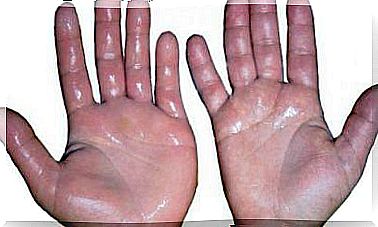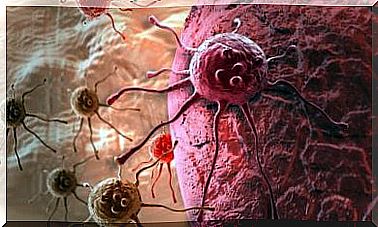Vitamin A Deficiency: Possible Risks

Lack of vitamin A can lead to various health problems. This nutrient is included in the category of vitamins known as fat-soluble vitamins, ie it dissolves in fat. Vitamin A needs a minimal amount of adipose tissue to be stored in the body.
In the human body, this vitamin fulfills several essential functions, because it intervenes in the development of vision and ensures eye health. On the other hand, it also acts as an antioxidant. Regular intake of vitamin A reduces the risk of developing complex diseases in the medium and long term, as specified in an article published in the journal Nutrients.
The good news is that vitamin A is a fairly abundant micronutrient in the diet. In fact, red and orange foods contain vitamin A. For this reason, regular consumption of vegetables ensures an optimal intake of vitamin A in the body.
Despite all the measures taken, you may still experience a lack of vitamin A. This can occur in low-fat diets or in people who do not have a varied diet. What are the consequences? In this article, we will tell you everything you need to know about this topic.
Vitamin A deficiency is linked to neurodegenerative diseases
Vitamin A plays a neuroprotective role. For this reason, its low levels have been associated with a higher prevalence of conditions associated with the elderly, such as Alzheimer’s disease.
Vitamin A deficiency is associated with a higher production of beta-amyloids, compounds related to the development of neurodegenerative diseases, according to an article published in 2017.
Antioxidants reduce the risk of diseases associated with aging. Vitamin A is no exception.

In the most severe cases of vitamin A deficiency, eye damage may develop. However, these cases are rare.
Gastrointestinal disorders caused by a lack of this vitamin are very common. For example, diarrhea is a common symptom in people suffering from this dietary problem.
Lung health
For this reason, in specific cases, we recommend that you take dietary supplements. As a general rule, it is best to get this vitamin by adopting a varied diet.
Foods that contain vitamin A
In addition, milk, butter and cheese are an important source of vitamin A. Even some pigmented fruits, such as apricots or mangoes, contain significant amounts of this vitamin.
In fact, if you adopt a varied diet, which contains plenty of vegetables, you will not suffer from a lack of vitamin A.

Monitor your vitamin A levels to prevent disease
Maintaining the level of vitamin A in the right range helps reduce the risk of developing diseases in the medium and long term. The first manifestations of this deficiency are gastrointestinal and ocular.
Over time, vitamin A deficiency causes changes in neuronal health and increases the risk of cancer or lung disease.
In general, we do not recommend taking vitamin A supplements. In fact, researchers have not shown that they would provide any benefit to healthy patients on a varied diet. This treatment is effective only in people who smoke or have obstructive lung disease.
In any case, we recommend that you frequently include red vegetables in your diet to reduce the risk of a deficiency. Dairy products are also an important source of vitamin A.
Also, do not forget that due to its antioxidant capacity, this vitamin helps fight aging and cell damage. For all these reasons, you should make sure you have a sufficient daily intake of vitamin A.









